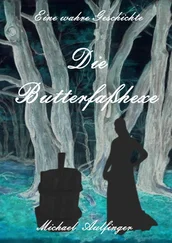* * *
Physiologically, I concluded, Helen enjoyed a state of continuous sexual receptivity. However, she also experienced ups and downs of appetite that probably stemmed from her menstrual cycle, for in this female particular she was almost wholly human. We accommodated each other’s needs, and if Helen occasionally withheld herself for several days, these bouts of protracted abstinence eventually worked to purge me of passion—much in the way that a lengthy fast inevitably undermines hunger. Together again, rediscovering the pleasure of the act, we fed on each other like starving carrion birds. Nor did I ever again insult my lady by producing a condom and thereby reminding her of how close I had come to bursting the promise of our romance.
Through discreet observation I confirmed that Helen was different from most of the habiline womenfolk in the disposition of her sexual organs. Whereas Dilsey, Guinevere, Emily, and all the rest had labia set almost directly beneath their anuses, Helen’s genital flower bloomed in a more forward location. This placement made it possible for us to consummate our mutual lusts face to face, the technique we preferred above all others. The other Minids, with some infrequent exceptions, as I have noted, usually mated after the fashion of mandrills and mangy australopithecines—but Helen was a human being in my sight, and our love was not bestial but sublime. I insist upon this point because there are so many people whose prejudices force them to deny what to me was self-evident from the moment of our first coupling.
(Later, of course, I had other, even better, proof of Helen’s humanity—but I do not wish to run ahead of my story.)
In the intervals between each rush of passion, Helen and I carried on as friends and companions. Our sense of oneness seldom permitted us to leave the other’s sight. I deloused her, and she fed me berries and tree mice. We scavenged, hunted, and foraged together. Side by side, we wandered the veldt and gallery forests. In Ngai’s eyes, at least, we were surely husband and wife.
I did not empedestal Helen, though. She had faults that I am not ashamed or embarrassed to record. For one thing, she sometimes stank. Her hair would become matted with grease or coated with dust, and the lack of water in the area made it difficult to remedy these problems. Once, under the pretext of play, I enticed my bride into the last remaining wallow of a rivercourse not far from New Helensburgh and there applied a piece of pumice stone to her back and belly. Afterward she smelled better, and behaved coquettishly, and gibbered at me her girlish gratitude. She did not like to be dirty.
A second fault here springs to mind. Helen could launch one-sided prattlefests, but she could not really talk to me. Although she was hardly to be blamed for this failing, I had begun to miss the sterling inanities of human conversation. I would have given two years’ pay and perquisites to hear from her pretty lips a single “Hot enough for you?” or “Have a nice day.” Instead I got tuneless scatsinging and a great deal of murmurous blather.
I decided that Helen must learn to speak. During my in-depth training for White Sphinx at Russell-Tharaka Air Force Base, Blair had introduced me to some of the current research on animal vocalization, and my understanding of this subject led me to conclude that Helen’s Babelesque cries and whispers were limbic in origin. That is, they had very little to do with the neurology of human speech, which flows like a river of light from the neocortical headwaters of Broca’s and Wernicke’s regions.
Researchers can prod a rhesus monkey to spill its entire reservoir of natural calls by flooding current into electrodes sunk like spigots in the limbic lobes. So primed, the monkeys babble indiscriminately.
By contrast, Helen’s prating was uniform in its emotional content and uncoerced, but “primitive” in that it rose from brain tissue older than those from which human speech pours forth, limpid and sustaining.
(When, of course, it is not turbid and constipating.) I wondered if Helen had the cerebral wherewithal to learn what I had resolved to teach her. And concluded that she must, not merely because endocasts of hominid brains have given proof of their incipient Broca’s areas, but also because my habilines possessed a repertoire of sounds so far beyond that of beasts that even I could not satisfactorily ape it.
Human beings have had reasonable success teaching rudimentary American Sign Language to chimpanzees and gorillas. However, I did not know this system, and the gestural language of the Minids already contained subtleties and refinements too nice for my apprehension. Even so, they best “talked” among themselves using facial expressions and eye movements, the way wolves are said to reveal a full gamut of canine strategies and desires. Likewise the Minids. A squint or a blink could apprise another in the band of the whereabouts of nearby vegetables. A puckering of mouth or brow could provide a telling gloss on this communication. Both text and gloss, unfortunately, were in an alphabet almost opaque to me, and although I did come to understand a little of Helen’s eye language, I made up my mind to teach her English.
I started with pronouns. Pronouns befuddle and exasperate. As in an old Tarzan movie or Abbot and Costello routine, pronouns deny or misconstrue themselves as soon as the instructor thumps his chest or nods pupilward. “I,” I said, pointing at myself: “I, I, I.” Although Helen could say this word, she pronounced it like the preface to a bloodcurdling hunting cry. No matter. My heart leapt. Of course, when I tried to teach her the word’s semantic value, to demonstrate that she had encompassed the concept, she poked me repeatedly in the chest with her gnarled thumb, all the while murmuring, “ Ai, Ai, Ai.” It took me a day to undo the damage, a feat I managed only with superhuman patience and the artful deployment of my shaving mirror.
We named, enunciated, and made meaningful moues in my hand-held mirror. Helen, to her credit, did not lose interest. Because I had not shaved since moving into New Helensburgh, she had never seen my mirror before. It was a circle of glass in an aluminum frame, and she immersed herself in its silver flatteries as a swan immerses itself in water. Each word I shaped was a new excuse to go gliding on her own reflection. Sometimes, indeed, she got so far from our mutual purpose that I despaired of pulling her back. She liked the way she looked, and she had never mistaken her image in the glass for that of a two-dimensional stranger trapped inside the mirror’s imprisoning frame.
Helen—as if I required further evidence of the fact—was self-aware . My mirror, a miracle, had simply given her a chance to walk on the waters of her self-awareness. I tried to get her to say the word.
“ Mwah,” she responded. “ Mwah.”
Because she could not simultaneously hold the mirror and preen in its tiny window, she made me hold it for her. Repeating her disappointing approximation of “mirror,” she loosened the bandanna I had tied about her neck and lifted it over her nose and lips. For a brief moment, then, she was an Islamic lady proclaiming the privilege and the pain of purdah. Then, hoisting it upward, Helen transformed the bandanna into a blindfold, through whose misaligned threads she disingenuously peered at herself. Up and down the bandanna went, becoming in the process a mammy scarf, a pair of earmuffs, and even a masquerader’s polka-dotted domino.
“Say ‘bandanna,’” I urged my bride. “‘Ban- DAN-nuh.’”
“ Bwaduh,” Helen said.
At that moment, trying to keep her bobbing face in the glass, I imagined myself the progenitor of an Ur-Swahili dialect whose descendant tongues would one day be spoken in Kenya, Uganda, Tanzania, and Zarakal. Mwah and bwaduh —along with Ai, mai, and yooh —were precious little upon which to base such a fantasy, I realize, but it seemed to me then that Helen and I were making progress.
Читать дальше



![Ally Carter - [Gallagher Girls 01] I'd Tell You I Love You But Then I'd Have to Kill You](/books/262179/ally-carter-gallagher-girls-01-i-d-tell-you-i-lo-thumb.webp)








